Publikace, nahrávky a jiné výstupy
Přehled toho, co jsem napsal a zveřejnil (jako sociolog) nebo nahrál a vydal (jako muzikant). Prostě veřejně dostupné "výstupy". V případě, že je to právně a technicky možné, postupně sem dávám k dispozici i plné texty a do příslušných oddílů hudební sekce pak i nějaké hudební ukázky ve formátu mp3.
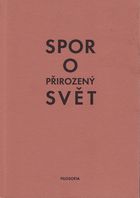
KONOPÁSEK, Z. (2010): Věda, každodenní skutečnost a "přirozený svět". In: B. Velický, K. Trlifajová & P. Kouba, eds.: Spor o přirozený svět. Praha: Filosofia. Str. 173-196
::::V tomto příspěvku se zamýšlím nad pojmem přirozeného světa ze dvou zvláštních sociologických hledisek: z hlediska současných studií vědy a technologií (science and technology studies, STS) a z perspektivy klasického sociálního konstruktivismu. Vysvětluji, zaprvé, proč STS na husserlovskou kritiku vědy (z pozic přirozeného světa) prakticky nenavazují, ač oba proudy bádání nějak problematizují založení vědeckého poznání. Za druhé jsem se snažil vysvětlit, proč a v jakém smyslu klasický sociální konstruktivismus, fenomenologicky založený a z úvah o žitém světě vycházející, znamená vlastně překročení koncepce přirozeného světa (a v důsledku i její opuštění). V obou případech přirozený svět vypadá jako nepříliš realistická a ne zrovna přesvědčivá abstrakce, která nevysvětluje – a asi ani nemůže vysvětlit či ozřejmit – podstatné otázky těchto oborů: tedy jaká je specifická povaha vědy (např. oproti jiným podobám vědění) a co zakládá každodenní svět, který se dá prakticky žít – psychicky, fyzicky i sociálně. Pojem přirozeného světa je dokonce poněkud nešťastný tím, jak navzdory proklamacím a veškeré snaze prohlubuje a stvrzuje propast mezi subjektem a objektem, mezi subjektivním a objektivním. V sociálním konstruktivismu to vyvolává řadu fatálních nedorozumění; a skrznaskrz konstruktivistická STS se těmto zmatkům a rozporům vyhnula tak, že se – podobně jako řada dalších konstruktivisticky založených bádání – od klasické, fenomenologicky založené podoby konstruktivismu zcela distancovala.
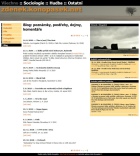
KONOPÁSEK, Z. (2009): Co by nás prý na vědě nemělo šokovat...? Blog Zdeňka Konopáska, 21. 11. 2009. Dostupné na adrese http://zdenek.konopasek.net/index.php?m=151&i=1215&b=151
::::Na okraj jednoho rodícího se "vědeckého skandálu": věda o klimatu přistižená v nedbalkách.

V/A (2009): For Semafor. CD. Klíče [key01]
::::"Petr Nikl, Jaroslav Dušek nebo Tata Bojs se popasovali s nestárnoucími písněmi z tvůrčí dílny pražského divadla Semafor. Výsledkem je album CD for Semafor, které šlágry Jiřího Suchého a Jiřího Šlitra přenáší do 21. století. Vyšlo k padesátému výročí vzniku této legendární divadelní scény. Vedle chladného elektra na albu zní garážový rock i akustické blues, vedle hitů i méně známé písně." (Zdroj: CT24.cz) (Můj osobní tip na nejlepší předělávky: Dva, OTK, Jan Štolba Trio)
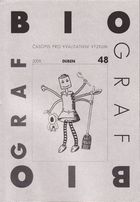
KONOPÁSEK, Z. (2009): Zapomeňte na pouhé transkripty: Atlas.ti, šestá verze. Biograf, (48): 95-113
::::Na přelomu února a března 2009 vyšla nová verze programu pro kvalitativní analýzu Atlas.ti. V této obsáhlé recenzi podrobně rozebírám zejména dvě klíčové inovace: (1) podporu PDF formátů; a (2) možnost synchronizovat nahrávku s jejím přepisem. První z těchto inovací otevírá prostor pro snadnou práci s odbornou literaturou, která je ve velkém množství dostupná právě ve formátu PDF. Podpora formátu PDF zároveň dovoluje načítat do Atlasu prakticky jakýkoli dokument z jakéhokoli programu, protože takřka vše, s čím na počítači pracujeme, lze dnes snadno a bez ztráty podstatných informací do formátu PDF převést. Druhá ze zmíněných inovací poskytuje příležitost k docela jinému zacházení s transkripty, než jsme dosud – podle mne ke své vlastní škodě – zvyklí. Nyní můžeme vyrábět přepisy, které mluví. Je také úzce svázána s možností pořizovat přepisy přímo v programu Atlas.ti.
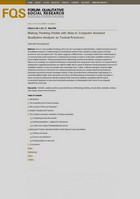
KONOPÁSEK, Z. (2008): Making thinking visible with Atlas.ti: Computer assisted qualitative analysis as textual practices. Forum Qualitative Sozialforschung / Forum: Qualitative Social Research, 9 (2): 62 odst., čl. 12. Dostupné na adrese http://nbn-resolving.de/urn:nbn:de:0114-fqs0802124
::::How is a new quality of reading, which we call "sociological understanding", created during the process of qualitative analysis? A methodological (conventional) answer to this question usually speaks of mental processes and conceptual work. This paper suggests a different view—sociological rather than methodological; or more precisely a view inspired by a contemporary sociology of science. It describes qualitative analysis as a set of material practices. Taking grounded theory methodology and the work with the computer programme Atlas.ti as an example, it is argued that thinking is inseparable from doing even in this domain. It is argued that by adopting the suggested perspective we might be better able to speak of otherwise hardly graspable processes of qualitative analysis in more accountable and instructable ways. Further, software packages would be better understood not only as "mere tools" for coding and retrieving, but also as complex virtual environments for embodied and practice-based knowledge making. Finally, grounded theory methodology might appear in a somewhat different light: when described not in terms of methodological or theoretical concepts but rather in terms of what we practically do with the analysed data, it becomes perfectly compatible with the radical constructivist, textualist, or even post-structuralist paradigms of interpretation (from which it has allegedly departed by a long way). (Reprinted from Historical Social Research 2007)
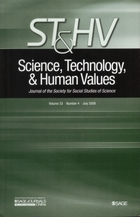
KONOPÁSEK, Z. / STÖCKELOVÁ, T. / ZAMYKALOVÁ, L. (2008): Making pure science and pure politics: On the expertise of bypass and the bypass of expertise. Science, Technology & Human Values, 33 (4): 529-553
::::This paper is based on a case study of a long-term public controversy over the construction of a highway bypass (around Plzen, Czech Republic). Two principal variants of the bypass were proposed. One of them began gradually to appear preferable, increasingly attractive for experts, but remaining only on paper. In the meantime, however, the other variant became more realistic, pushed through mainly by local politicians and actually constructed. We show how purification of science from politics (and vice versa) played a key role in the development and ending of the case. Initial expertisation of the case switched to its sharp politicization, when people got frustrated from protraction and indecisive evidence of accumulated expertise. This turned to be fatal for those who consistently staked everything on "pure facts". We conclude by outlining some general consequences of such a development for both democratic decision making and the political relevance of expertise.
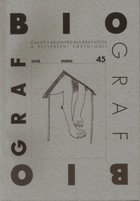
KONOPÁSEK, Z. (2008): Co prý znamená dívat se sociologicky: Povzdech na okraj jedné debaty. Biograf , (45): 119-135
, (45): 119-135
::::V textu se diskutuje obraz sociologie vytvářený během sporů ohledně údajného plagiátorství prof. Ivo Budila v několika málo příspěvcích, které se výslovně dovolávaly “sociologického úhlu pohledu”. Vysvětluji nedorozumění týkající se sociálního konstruktivismu a nezaujatého sociologického stanoviska.
KONOPÁSEK, Z. (2008): Expertíza a politika životního prostředí: Případ projektu Natura 2000. CTS Research Reports, CTS-08-02. Praha: CTS. Dostupné na adrese http://www.cts.cuni.cz
::::As sociologists interested in the relationships between expert knowledge and policy making we have studied in detail the processes of implementation of European directives on natural habitats, wild fauna and flora (92/43/EEC) nad on conservation of wild birds (79/409/EEC) in the Czech republic - i.e., the preparation and implemenation of so called Natura 2000. We have focused on diverse practices of expert mapping of the Czech nature, on how national lists of Sites of Community Importance were produced and on how the preparation of these lists was consulted with the public. We also observed how Natura 2000 was shaped by various actors in various ways, so that it could be connected to various plans, projects and trajectories (beyond the plan of Natura 2000 itself). As a result, a number of compromises were incorporated into the project - compromises which were often regarded as problematic, but which, at the same time, made Natura 2000 an object that could be reasonably shared (and supported) by environmentalists, naturalists, policy makers, activists and scientists from various fields. In comparison to, e.g., France, the implementation of Natura 2000 in the Czech Republic passed through smoothly, without major political controversies and as originally intended, i.e., as an exclusively expert driven project. To explain this we offer some insights into different political cultures in the Czech Republic and Western Europe, including specific contexts of the Czech accession process to the EU and its impact on political culture. Our close study of how the Czech nature was mapped and how so called national lists were established reveals that these processes were not completely apolitical and purely expert-driven. We have described a number of particular interests, political calculations, EU-related concerns, organisational contexts etc. intervening into the seemingly purely scientific methods and viewpoints. However, we have also shown that these non-scientific elements often did not work against the scientific quality of the project, but rather reinforced it. For instance, some administrative interventions strengthened the quality of scientific data - as their unintended by-product. Thus, we now better and more realistically understand what it means when we say that a project is purely expert-driven. It means usually something slightly different than to proceed strictly apolitically, but on the other hand it does not mean that expert perspectives are made secondary or even irrelevant.
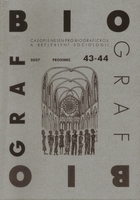
WATERTON, C. (2007): Od terénu k představám: Klasifikace přírody a vytváření Evropy. Biograf , (43-44): 3-32 - přeložil Zdeněk Konopásek
, (43-44): 3-32 - přeložil Zdeněk Konopásek
::::This paper sets out some observations on the making, and use, of contemporary classifications of nature in the context of a simultaneous and on-going "making" of Europe. It looks in particular at two classifications, one of British vegetation communities and the other of European "biotopes" (a concept that closely relates to natural or semi-natural "habitats") – respectively, the UK National Vegetation Classification (NVC) and the EU CORINE Biotopes Classification. It investigates aspects of the relationship between these two classifications which has come about through their use in a European conservation policy. The CORINE Biotopes classification, in particular, represents a new ordering of nature in a very active sense: it is a good example of a "working archive", and is intimately tied into policy decisions at many levels in Europe. The paper addresses questions as to how contemporary classifications are being made and used, and whether certain tacit understandings and conceptual frameworks "built in" to them reflect back upon the world at a later stage. It argues that these classifications do not always simply reflect the assumptions and understandings built into them: once in the policy domain, they are not as "reversible" as that. Their categories quickly become unstable, mutating and interacting in sometimes unpredictable ways. The two classifications, through their relationship with policy, have a jointly evolving history. The continual renewal of meaning attached to classes within these classifications appears to reflect outwards rather than inwards – in chorus with the broader social and political context, rather than reflecting the condition of their making. In their evolving forms, they illustrate very well the complex nature of the dynamic between unity and diversity, centre and periphery, that lies at the heart of the European Union.
Přeloženo z originálu WATERTON, C. (2002): From field to fantasy: Classifying nature, constructing Europe. Social Studies of Science, 32 (2): 177-204
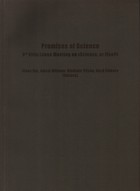
KONOPÁSEK, Z. (2007): The language metaphor in sociology - two different trajectories. In: A. Wittwer, E. Kut, V. Pliska & G. Folkers, eds.: Approaching scientific knowledge: Metaphors and models. Zurich: Collegium Helveticum. Str. 35-42
::::Metafora jazyka patří mezi vlivné metafory v sociologii. Podle Browna jde vlastně o klíčovou metaforu (root metaphor), protože ji používáme jako zcela běžné, často ani nevyslovené obecné zarámování toho, jak si představujeme sociální struktury a procesy, jak je pozorujeme a studujeme. Pro řadu sociologů nejsou sociální jevy jako jazyk, ale vlastně jsou jazykem. Chápat skutečnost jako jazyk či jazykové projevy však může znamenat velmi různé věci; a různé pojetí jazykové metafory se také promítá velmi různým, často rozporným způsobem do sociologické teorie a metodologie. Pro někoho vede metafora jazyka nevyhnutně k významné a politováníhodné redukci: jako sociologicky podstatná se pak přijímá pouze malá část skutečnosti, vlastně jen texty a jazykové promluvy, zatímco zbytek je ponechán stranou. Jiní sociologové berou za svou metaforu jazyka poněkud jinak, vlastně protikladně. Uplatňují to, co o povaze a fungování jazyka víme, na v zásadě kterýkoli prvek tzv. mimo-jazykové skutečnosti. Realita tak není redukována na texty, ale učíme se (nejrůznější) realitě rozumět jako něčemu jazykovému, textuálnímu. V tomto textu tyto dva protichůdné přístupy načrtávám a vysvětluji, abych předvedl jak různý význam může ve vědeckém používání (dokonce v rámci jediné disciplíny) zdánlivě tatáž metafora.











